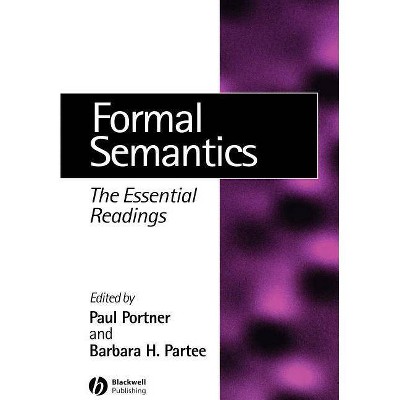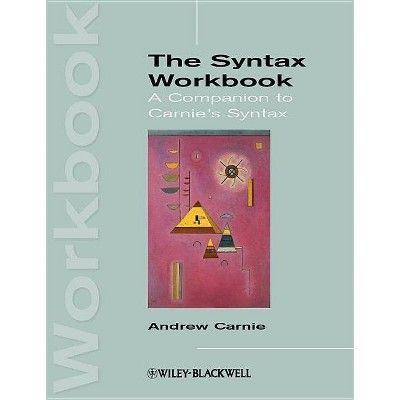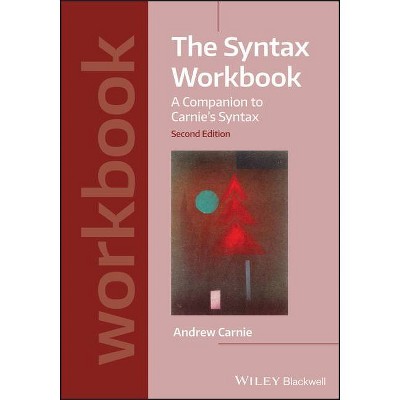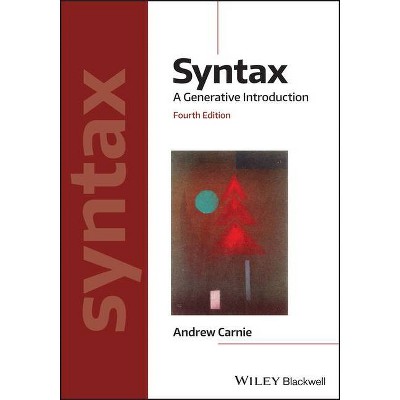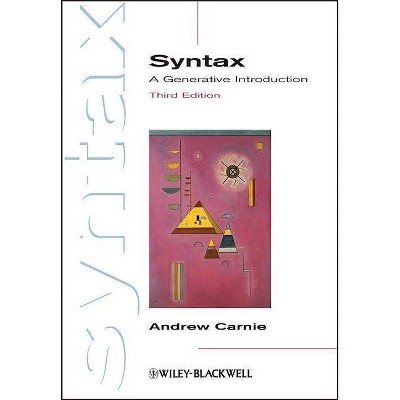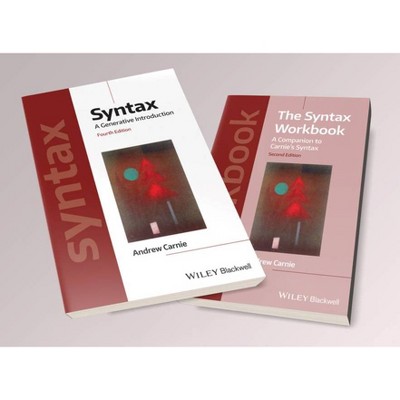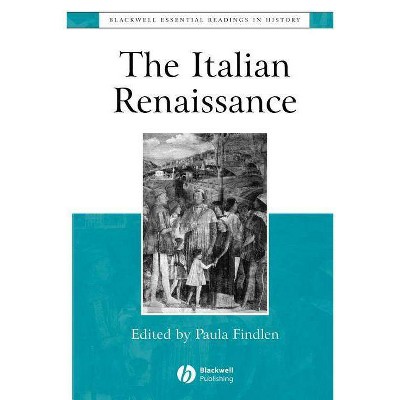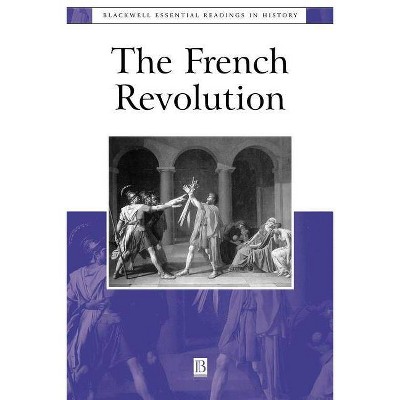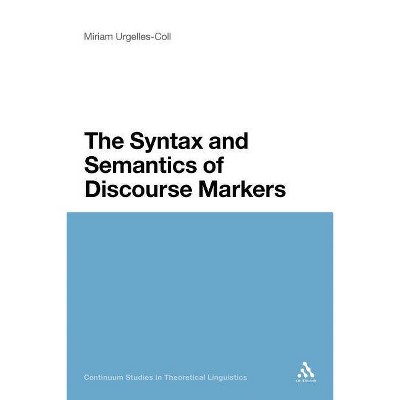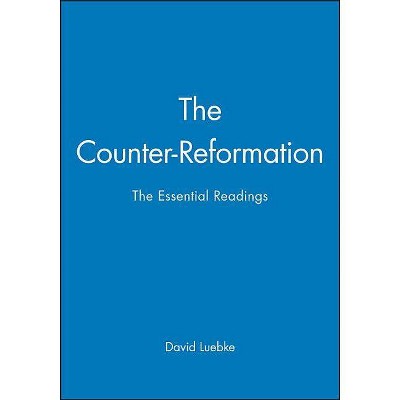Minimalist Syntax Essentia Rea - (Linguistics: The Essential Readings) by Zeljko Boskovic & Howard Lasnik (Paperback)
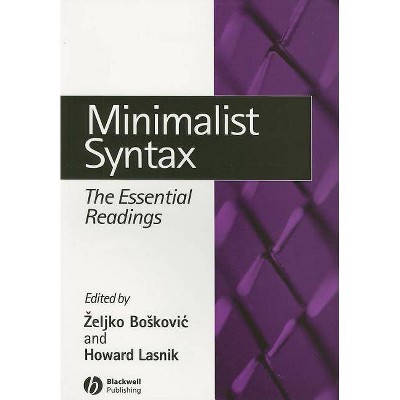
Similar Products
Products of same category from the store
AllProduct info
<p/><br></br><p><b> Book Synopsis </b></p></br></br>This book is a collection of key readings on Minimalist Syntax, the most recent, and arguably most important, theoretical development within the Principles and Parameters approach to syntactic theory. <br /> <ul> <br /> </li> <li>Brings together in one volume the key readings on Minimalist Syntax<br /> </li> <li>Includes an introduction and overview of the Minimalist Program written by two prominent researchers<br /> </li> <li>Excerpts crucial pieces from the beginning of Minimalism to the most recent work and provides invaluable coverage of the most important topics.</li> </ul><p/><br></br><p><b> From the Back Cover </b></p></br></br>This book is a collection of key readings on Minimalist Syntax, the most recent, and arguably most important, theoretical development within the principles and parameters approach to syntactic theory. The volume includes an introduction and overview of the Minimalist Program written by two prominent researchers. <i>Minimalist Syntax: The Essential Readings</i> excerpts crucial pieces from the beginning of Minimalism to the most recent work and provides invaluable coverage of its most important topics.<p/><br></br><p><b> Review Quotes </b></p></br></br><br>The physicist Paul Dirac noted that the beauty of an equation is far more important than its fit to the experimental evidence. The Minimalist Program in linguistics, championed by Chomsky in the mid-1990s, is an attempt to seek beauty in the theory of linguistics. <i>Minimalist Synta</i>x synthesizes the current state of play, showing both the elegance of the theory, and its far reaching implications for not only the study of language, but the mind more generally. You may not agree with the perspective outlined, and may not find the evidence compelling, but if you don't take the proposal seriously, you will miss out on what could be one of the most radical and intellectually stimulating theories of the mind in the 21st century.<br /> <i>--Marc Hauser, Harvard College, author of Wild Minds (2000) and Moral Minds (2006).</i><br /> <p>A fine collection of excerpts from many of the most important and influential texts of the Minimalist Program. Organized by topic, the editors have helpfully juxtaposed selections from the literature to give the reader a feel for how debates progressed and how ideas were shaped. This book provides the essential core reading list for any course on minimalist syntactic theory. It is also a must-have all-in-one-place reference source for syntacticians.<br /> <i>--Tim Stowell, UCLA</i><br /> </p> <p>An authoritative and comprehensive volume detailing how the Minimalist Program developed out of earlier work, and making clever use of extracts from key works by the world's leading scholars. A unique teaching and research resource.<br /> <i>--Andrew Radford, University of Essex</i></p><br><p/><br></br><p><b> About the Author </b></p></br></br><b>Zeljko Boskovic</b> is Professor in the Department of Linguistics at the University of Connecticut. He is the author of T<i>he Syntax of Nonfinite Complementation: An Economy Approach</i> (1997) and <i>On the Nature of the Syntax-Phonology Interface: Cliticization and Related Phenomena</i> (2001).<br /> <p><b>Howard Lasnik</b> is Distinguished University Professor in the Department of Linguistics at the University of Maryland. His publications include <i>Essays on Anaphora</i> (1989), <i>Minimalist Analysis</i> (Blackwell, 1999), <i>Minimalist Investigations in Linguistic Theory</i> (2003), and <i>A Course in Minimalist Syntax</i> (with Juan Uriagereka, Blackwell, 2005).</p>
Price History
Price Archive shows prices from various stores, lets you see history and find the cheapest. There is no actual sale on the website. For all support, inquiry and suggestion messages communication@pricearchive.us
